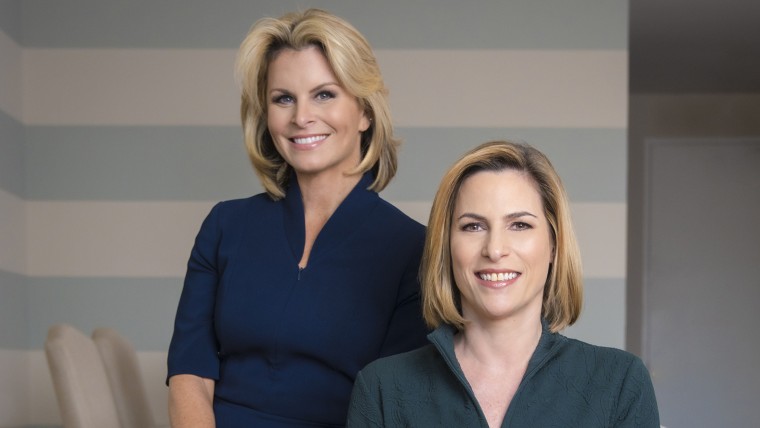Besides being political strategists that appear regularly on “Morning Joe,” we also share the same mentor: Mika Brzezinski. Mika has given us invaluable advice over the course of our careers. With her help, we’ve learned how to believe in ourselves, successfully negotiate a contract, dress for our message and more.
We also have been on both sides of the mentor-mentee relationship throughout the 50 years of our combined experience working in campaigns and government.
What you can learn as a mentee, of course, is immeasurable, and being a mentor is a fantastic, fulfilling experience.
In politics and government there is often quite a bit of mentoring. Sometimes it’s a staffer who decides to run for local office and seeks help from a seasoned politician. Other times, someone is drawn to a particular policy or area of expertise and looks for someone who can teach them the ropes.
We’ve learned that mentorship isn’t one-sided, and it’s not something you just seek out early in your career. You should always have your eyes open for an opportunity to learn from successful people in areas where you want to grow. As you advance in your career, your needs and goals will inevitably change.
We have been very fortunate to have people advise and teach us along the way. Here’s how we have gotten the most out of those relationships.
Remember: You’re not looking for a best friend
Adrienne:
One of the first things you learn when developing a mentor-mentee relationship is to recognize boundaries. A mentor doesn’t need to become your best friend. It’s a personal relationship, but it’s based on mutual understanding and respect.
I remember being at a point in my career when I was ready to move on to a different position, but for a variety of reasons, felt stuck. I reached out to someone I used to work for, and it was great to reconnect because I really valued her opinion. But, in our conversations I soon noticed she never brought up anything personal and kept everything strictly about the job search. In the campaign world, everyone is in everyone's business, which is why I found it a little disarming and tried to be more personable.
RELATED: Mika: The 4 mentors 'who had an impact on my psyche'
What I came to realize was a successful mentoring relationship doesn’t necessarily have become a dear friendship to be successful. Years after working for my once-supervisor, I still turn to her for advice.
Don’t be afraid to move out of your lane
Susan:
It’s common to develop a mentoring relationship with someone in your field, but be open to different perspectives. In many cases a good problem solver, manager or leader can thrive in diverse environments.
A couple of years ago, for example, I reached out to someone I didn’t know well but respected a great deal. She had always done amazing work, and I never knew how she was able to be so successful in so many different fields. She told me – stay organized and network out of your industry.
RELATED: Mika's mentees: My toughest career challenges — and best pieces of advice
She invited me to events that I would never have thought of attending. And if I questioned “why,” or said “this is not for me”, she would push me harder to go. I have continued that practice and even picked up a few clients along the way.
Having the right mentor can have an incredible impact on your career. We asked Alaina Beverly, founder and director of the Urban America Forward, and assistant vice president for Urban Affairs at the University of Chicago, about a mentor that shaped her career. This is what Alaina, who also worked in the Obama Administration supporting civic engagement in communities, told us:
Mentorship isn’t just for newbies
Alaina:
I have worked in politics, government and academia with a focus on urban policy for over 15 years. Mentors in the Obama Administration dramatically shaped, not just my trajectory, but my personal leadership style.
My White House experience crystalized the importance of seeking out local models of community-driven change. My deep appreciation for community leadership influences the national program I direct today, Urban America Forward, which convenes community practitioners and researchers to share methods of advancing equity in urban America.
At the White House I didn’t just have one mentor. I was fortunate to be advised, and often pushed, by a family of colleagues to look beyond lofty policy prescriptions to community-determined solutions. Their counsel became ingrained in my approach and taught me how to take policy to the next level.
The take-away; mentors are not only important when you are just starting out, they can have an incredible impact on you throughout your career. And don’t be afraid to look outside of your current industry. Think about it, people weave in and out of our lives constantly. We can all learn from all of them – there are probably people in your life right now that could serve as a mentor to you.
Susan Del Percio is a New York-based Republican strategist and Adrienne Elrod is a Washington, D.C.-based Democratic strategist. Their column, "Politicking for Success" appears bi-weekly on NBC News' Know Your Value.
